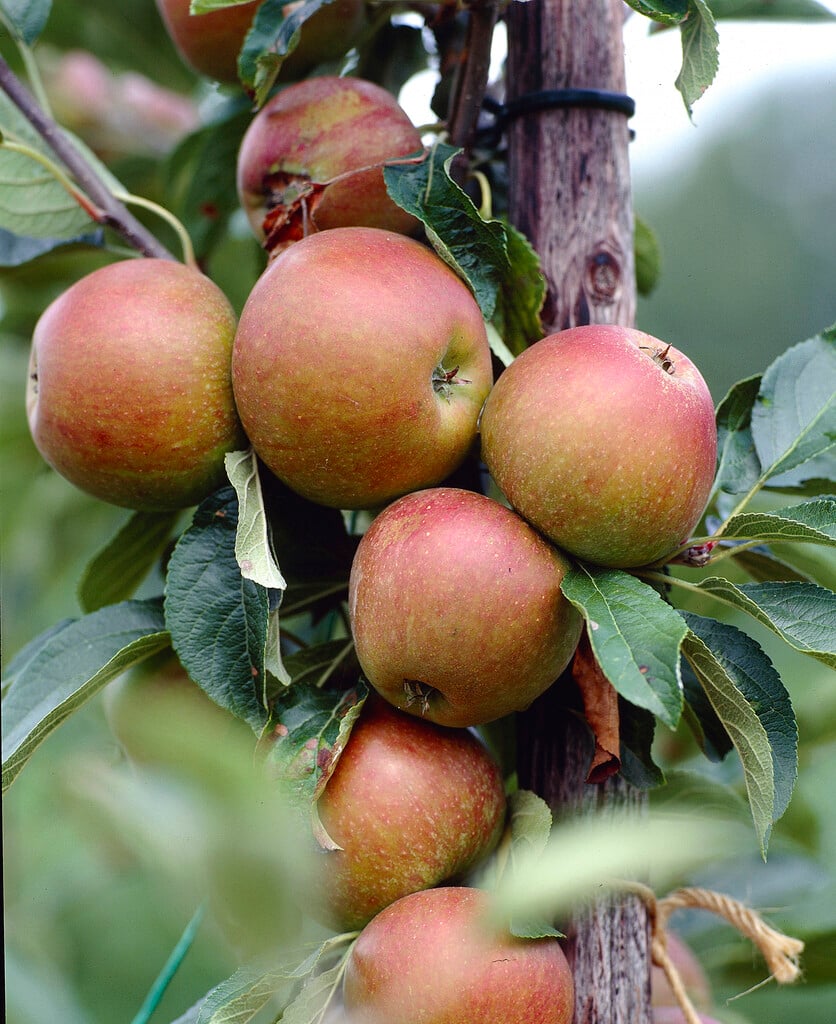Malus domestica 'Cox's Orange Pippin' (D)
apple 'Cox's Orange Pippin'
A dessert cultivar in pollination group 3. It needs favourable soil and weather conditions to crop well. Fruit is medium-size with an orange/red flush and red stripes over greenish-yellow, with a rich flavour. Season of use is from October to January
Size
Ultimate height
4–8 metresTime to ultimate height
5–10 yearsUltimate spread
4–8 metresGrowing conditions
Moisture
Moist but well–drained, Well–drainedpH
NeutralColour & scent
| Stem | Flower | Foliage | Fruit | |
| Spring | Pink | Green | ||
|---|---|---|---|---|
| Summer | Green | |||
| Autumn | Green | Orange Yellow Red | ||
| Winter |
Position
- Full sun
Aspect
South–facing or West–facing
Exposure
Sheltered Hardiness
H6Botanical details
- Family
- Rosaceae
- Native to GB / Ireland
- No
- Foliage
- Deciduous
- Habit
- Bushy
- Genus
Malus are small to medium-sized deciduous trees with showy flowers in spring and ornamental or edible fruit in autumn; some have good autumn foliage colour
- Name status
Accepted
How to grow
Cultivation
It will crop best in a sunny situation. Prefers a warm climate and good soil conditions. The height will depend on the rootstock and training method. Suitable for all training forms, including espalier and fan-trained. Keep a clear area around the trunk of at least 60cm radius. Fruit thinning may be required. For more details see apple cultivation
Propagation
Propagate by chip budding or grafting onto a clonal rootstock for fruit. The rootstock used will largely determine the size of the tree
Suggested planting locations and garden types
- Cottage and informal garden
- Wildlife gardens
- Edible fruit
Pruning
Regular pruning is required - see apple pruning; this cultivar is spur bearing
Pests
May be susceptible to aphids, including woolly aphid and rosy apple aphid, fruit tree red spider mite, codling moth and other caterpillars
Diseases
May be susceptible to apple canker, apple scab, blossom wilt, brown rot, fireblight, honey fungus and powdery mildews
Get involved
The Royal Horticultural Society is the UK’s leading gardening charity. We aim to enrich everyone’s life through plants, and make the UK a greener and more beautiful place.
